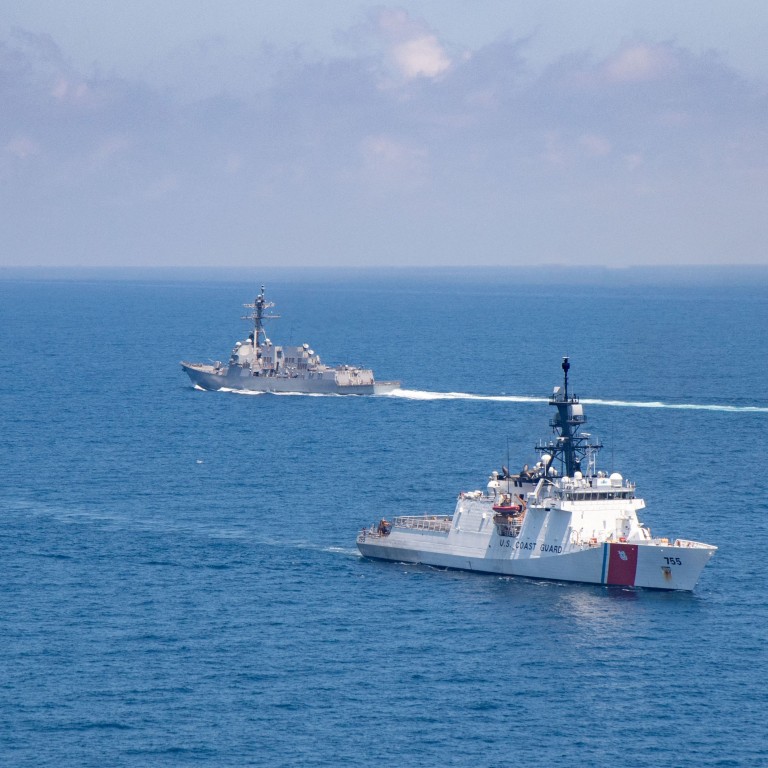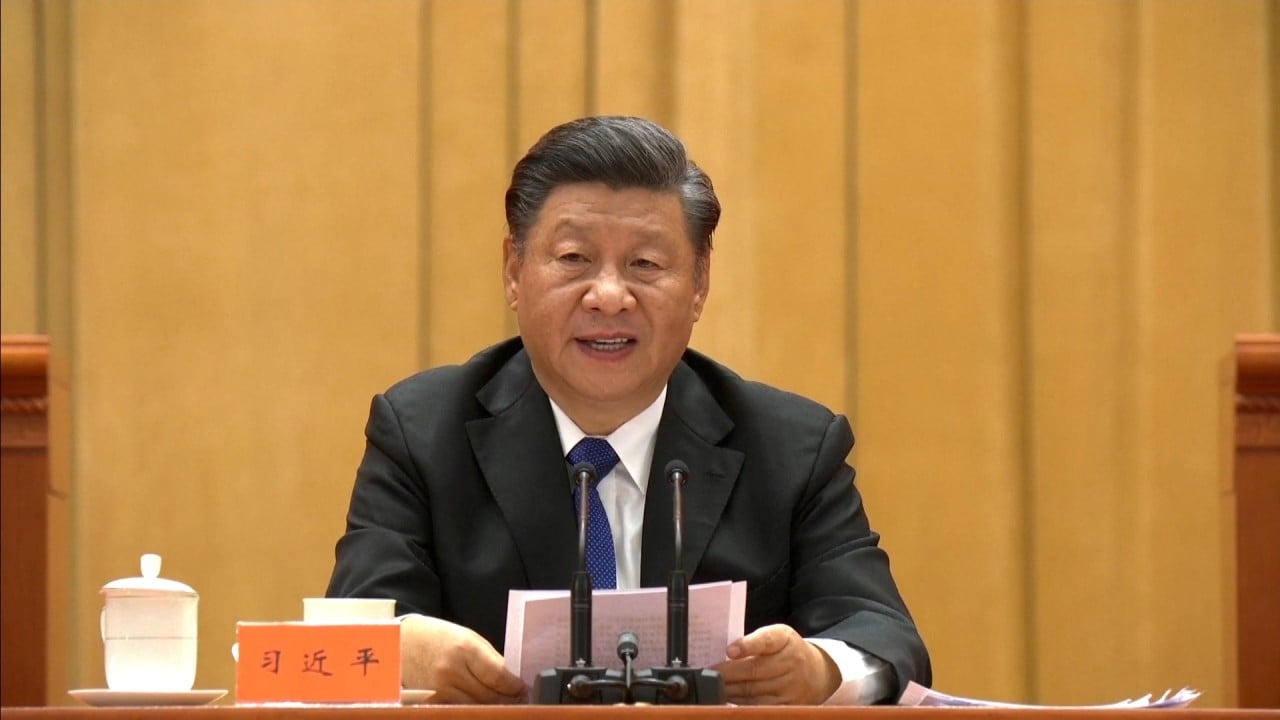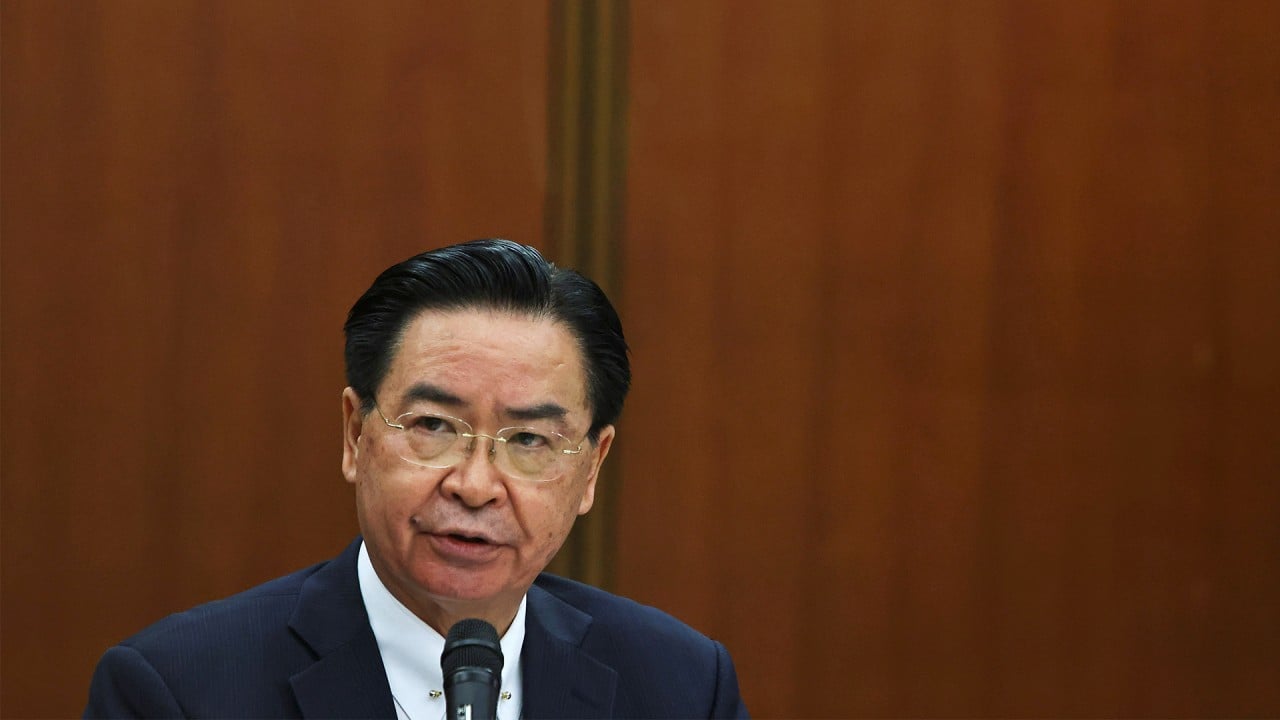
Taiwan war risk highest in past 25 years as US tensions rise, mainland expert warns
- Growing US support for Taipei and Beijing’s ramped up reunification rhetoric mean risk of conflict highest since 1996 crisis, academic points out
- Beijing unlikely to show aversion to military conflict, as this would deepen US support and make Taiwan more determined to seek independence, Shi Yinhong says
This goal – which Beijing aims to achieve within a decade – could mean a massive use of force, or the threat of a massive use of force, Shi told an international relations forum in Beijing on Thursday.
In 1996, as Taiwan was preparing to hold its first direct presidential election, Beijing held a series of military exercises and fired missiles in the waters surrounding the island, prompting the US to deploy carrier strike groups to international waters near it.
“The Chinese government is unlikely to give the United States and Taiwan an impression that [it] seeks to completely avoid military conflict with the US over Taiwan, as Beijing believes this will lead to a deepening of US support for Taiwan, and make Taiwan more determined to seek independence,” Shi said.
All parties must assess the situation and be prepared in case there is war over Taiwan, he said.
New stealth moves as US Navy ramps up South China Sea visits
This came as former Singapore prime minister Goh Chok Tong said that the US and China should negotiate “guard rails” and create a direct and open communication channel so its leaders could contact each other quickly to avert conflict over Taiwan.
“I do not think the mainland wants to invade Taiwan and reunify it through force. However, if it sees no prospect for peaceful reunification, it may believe it has no choice.”
Also at the Beijing forum, Zhu Feng, a professor of international relations at Nanjing University, warned that the Taiwan issue might become a flashpoint in the Sino-US strategic rivalry, as Beijing sees the US trying “to force China into a corner” by repeating the tactics it used against the Soviet Union during the Cold War.
How snubbing one-China almost led Beijing, US into war in the 1990s
Cui Hongjian, a senior research fellow at the China Institute of International Studies in Beijing, said the situation was becoming ever more serious, with Lithuania having taken the lead to confront Beijing over Taiwan, and others in Europe following suit.
“It is difficult to avoid the trend of Taiwan issues becoming more long-term and explicit issues in Europe,” Cui said. This was due to political changes in Europe but was also related to the overall competition between China and the US, which uses its alliance system to contain Beijing, he said.
Jia Qingguo, a professor of international studies at Peking University, said China and the US were almost on the brink of military conflict over Taiwan.
However, in the medium and long term, stability and a strengthening of cooperation in some areas could be expected, given the common interests in bilateral and multilateral issues.




